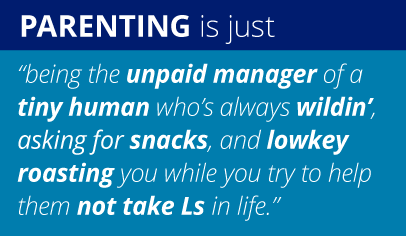
What is Plagiarism in the Age of AI? A Parent’s Guide to Helping Kids Use AI

End-Of-Year Gifts Your Teacher Actually Wants

Children, Influencers, and Impulse Buying Online

TeacherLists Surpasses One Million School Supply Lists on its Platform

Books, Movies, and TV Shows to Binge: Parent Recommendations

How to Talk to your Child About Their World

Tips and Tricks for a Successful Back-to-School Routine
No Image found
8 Books for Overcoming Back-to-School Anxiety

What is the Metaverse—and should you be concerned?

10 Ways to Honor Memorial Day with your Children

Mother’s Day “Mom-Me” Time Activities from Real Moms

Teacher Appreciation Week: The Do’s and Don’ts

Standardized Tests: Tips and Tricks to Prepare Your Children

5 Tips to Promote Social-Emotional Development at Home
No Image found
8 Spring Activities that Help the Planet

Screen Time: the good, the bad, and the balance
The 10 Most Boring (But Awesome!) Gifts for Teachers
Set Kids Up for School Success: Healthy Habits Parents Can Teach Their Kids
7 Smart Tips To Help You Ace Back-to-School Shopping

Talking to Kids About Anti-Racism and Race Relations

Science for Kids: 28+ STEM Activities To Do at Home

Parents: You Should Know This Internet Slang
After-School Snacks: Healthy Options for Kids

Understanding Report Cards: A Guide for Parents

Learning Styles Quiz: What Is Your Child's Learning Style?

Helping Students Adjust to the New School Year: Teacher Tips for Parents

School Success - 10 Ways Parents Can Help: Teacher Tips for Parents

10 Ways To Help Kids Handle Back-to-School Anxiety: Teacher Tips for Parents

Make Parents Your Partner: Teacher Tips for Parents

Homework Tips for Parents: Teacher Tips for Parents
No Image found
Student Goal Setting: 3 Teacher Tips for Parents

At-Home Learning Tips for Parents: Teacher Tips for Parents

Guide to Parent-Teacher Conferences: Teacher Tips for Parents
No Image found
The Top Teacher Gifts You Can Find on Amazon Right Now
No Image found
How to Use One-Click Shopping Right From Your List
No Image found
TeacherLists Partners with National Retailers for One-Click Shopping Convenience for Parents
No Image found
How Parent Groups can help their Schools with TeacherLists
No Image found
How To Use Amazon To Purchase TeacherLists Wish List Items

How To Use Target To Purchase Your Supply List Online
No Image found
What You Need to Know About Back-to-School Shopping In Your State
No Image found







































